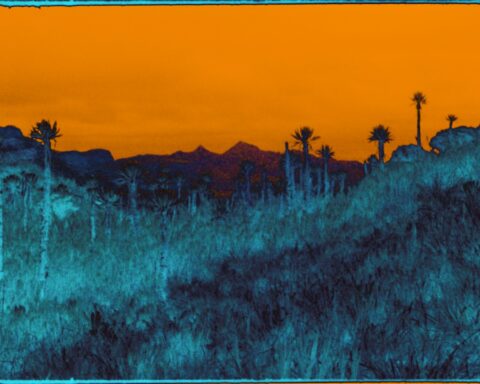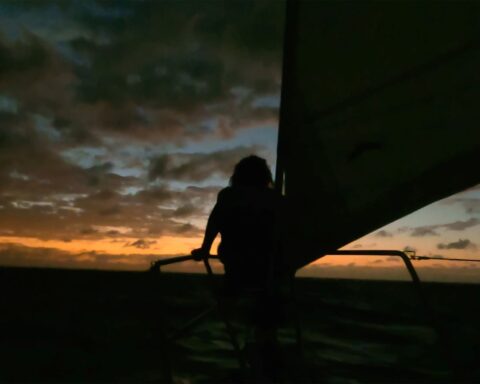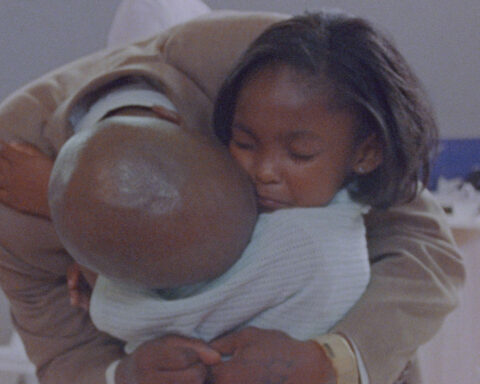Gordon Lightfoot is often called Canada’s greatest songwriter. His many hit folk songs, including “If You Could Read My Mind,” “Early Morning Rain,” “The Wreck of the Edmund Fitzgerald” and “Ribbon of Darkness” have shaped music worldwide with their mellow words and harmonies. He’s been covered by artists like Bob Dylan, Elvis Presley, Barbra Streisand and Eric Clapton, proving that music with a distinctly Canadian flavour can have a universal feeling.
“It comes out of a certain place,” says co-director Martha Kehoe of the new doc Gordon Lightfoot: If You Could Read My Mind. “A time, a group of people, collectives and social feelings. The Toronto music scene was small then, but some major people spring-boarded out of it. That’s significant.”
Kehoe joins director Joan Tosoni for what will certainly be one of the biggest Canuck crowd-pleasers this year. Their easygoing documentary gives a Canadian icon his due. Interviews with Lightfoot and artists like Randy Bachman, Burton Cummings, Anne Murray, Geddy Lee and Ian and Sylvia Tyson weave an oral history of Canadian music. Lightfoot’s story is one of an artist establishing himself when too few homegrown artists appeared on Canadian airwaves.
The doc is also a snapshot of Canadian culture coming into being. Often characterized as the acoustic neighbour to the USA’s boisterous rock ’n’ roll, Canadian music found its voice through the folk scene. Whether one discovered Lightfoot in a smoky Yorkville coffeehouse or through an upbeat cover in the disco dud 54, the doc provides a timeless tribute to an icon who has captured the Canadian ethos unlike few other artists.
Kehoe and Tosoni describe discovering Lightfoot long before Much Music and Electric Circus united Canucks through music. “I came to Gord’s music because I had older siblings,” says Kehoe. “I grew up watching The Midnight Special and Don Kirshner’s Rock Concert. Interestingly enough, Insight [Productions] did a show called Heart of Gold [1982]. John Brunton, the executive producer of this film, was the producer. It was an anthology of Canadian rock and pop music. There was a section on Gord and everybody else: Guess Who, Joni Mitchell, Anne Murray, Rush, Chilliwack. It was my dream show.” Kehoe says her enthusiasm for Heart of Gold opened a door to the industry as she began work with Insight that continues today.
Tosoni similarly recalls being struck by Heart of Gold. “It was on over three nights,” she recalls. “I couldn’t believe they were doing a show like that. I called all my friends and told them to watch the show. And then I ended up spending a large part of my career at Insight.” Kehoe and Tosoni have told stories of Canadian culture, particularly Canadian music, over the years at Insight on shows like Country Gold, Canadian Idol, the Junos, and docs such as Joni Mitchell: Painting with Words and Music, among others. Their portrait of Lightfoot is reared on an appreciation for the roots that the singer/songwriter laid down in the Canadian and international music scene.
In the film, Lightfoot reflects on his career journey from Orillia, Ontario to closing out Toronto’s Massey Hall in 2018. He’s a man of few words, despite expressing himself so vividly through songs. Rather than trying to capture the entirety of Lightfoot’s story from childhood to present, the doc intertwines his biography with segments that unpack key songs within the social history of Canadian music.
Lightfoot, however, isn’t keen to revisit one song. The doc opens with a surprising scene in which Lightfoot disavows “For Lovin’ Me.” He dismisses it as words of an insensitive man who didn’t appreciate women. The candid remark tells audiences that the doc, while respectful, isn’t fawning hagiography.
“That was an extremely tense moment,” says Kehoe. “Gordon is an enigmatic artist and very ‘Canadian,’ which means he’s afraid to have an ego. He’s a bit embarrassed by being a star. He went from Christian choirboy to a rock star selling out arenas.” At 80, though, Lightfoot isn’t one for excuses or running from the past. He has nothing left to prove.
“When he started in the coffee houses in Yorkville, [the venues] didn’t even have liquor licenses,” says Kehoe. “Kids were going to see folk music and drinking coffee and smoking cigarettes. Think of how the ’60s and the ’70s changed things. Now he’s looking at this misogyny through a new lens.” The doc doesn’t shy away from Lightfoot’s troubles—in fact, it’s at its best when he confronts them, like in a sequence that frames “Sundown” with his tumultuous relationship with Cathy Smith, who gained notoriety for her involvement in actor John Belushi’s fatal drug overdose. Kehoe and Tosoni let Lightfoot address his troubles in his own words, while the archival images chart his physical transformation from alcoholism to sobriety.
The doc features an elaborate archival collage drawn from extensive research. “There’s not as much footage out there of Gordon as you might think,” admits Kehoe. “When I first started my career, I did a lot of research at CBC. Joanie and I worked there, so we knew what Canadian footage was around. We had two visual researchers [Sarah Wolfe and Elizabeth Klinck] put out their feelers. Gord also has a treasure trove of photographs, which we were able to access.”
In addition to vintage concert footage and photographs of Lightfoot partying with Bob Dylan and Joni Mitchell, some extremely rare material will delight fans. “One hidden gem is the song ‘Movin’,’ which was shot in the Riverboat,” says Tosoni, noting the Yorkville coffee house that was central to Lightfoot’s career. “We had never seen that before our researcher found it in a promotional film for CN from the ’60s. Apart from a few photographs, it’s the only thing that places Gord in a performance at the Riverboat.” Tosoni also notes that Lightfoot generously provided his original handwritten lead sheets, which serve as visual complements to the songs. They’re rare artifacts and reminders of the humble beginnings of Canada’s music scene.
Tosoni says that seeing the lead sheet for “If You Could Read My Mind” at Lightfoot’s home gave her chills, and the film’s effective use of the song provides goosebumps. Perhaps unexpectedly, the opening credits feature not Lightfoot performing the ballad, but a harmonious cover by Diana Krall and Sarah McLachlan. “We saw this as a living testament to Gord’s legacy that these two top stars, two women, recorded such a gorgeous version of it,” says Kehoe. “This music is timeless. It belongs to all Canadians. People are going to continue to sing and record his music.”
Framing the doc around Lightfoot’s most popular (and, arguably, best) song also has a formal richness that mirrors the experience of seeing him in concert. “If you’ve ever been to a concert of his, you can hear the room change as soon as he plays those first few notes,” observes Tosoni. “Something happens in the room. People want to hear that song, and we wanted to save him singing it until people were fully invested.”
The song has a different flavour when it plays with the richness of Lightfoot’s baritone. “If You Could Read My Mind” speaks to his longevity and legacy. One knows Lightfoot’s significance better within the time and place from which the song emerged. “Dylan, the Beatles, Gord—they came along in a certain point in history that no one else will be there for,” says Tosoni. “Gord created the notion of a Canadian musician in a way that no one had before.”
What a tale, indeed.
Gordon Lightfoot: If You Could Read My Mind opens in Toronto on Friday, May 24 at Hot Docs Ted Rogers Cinema










